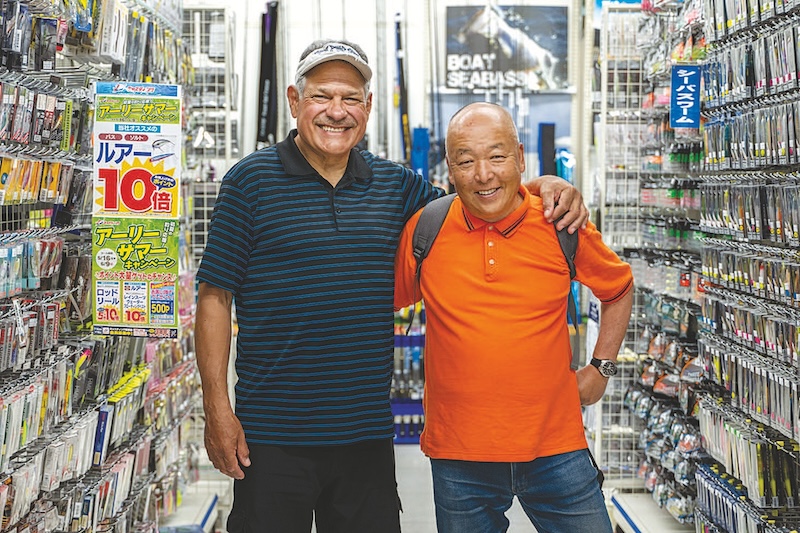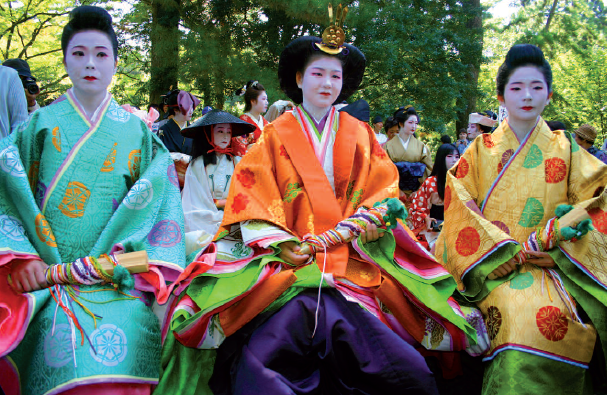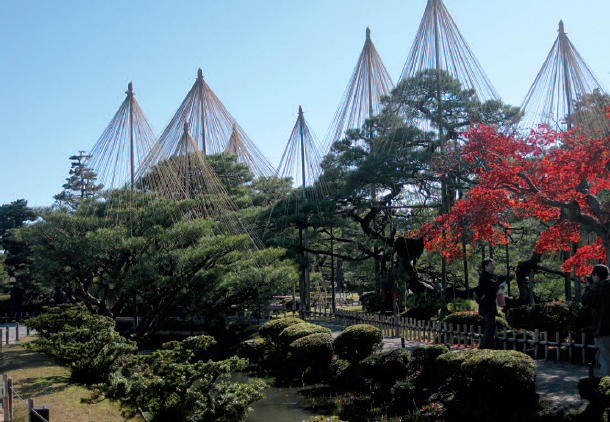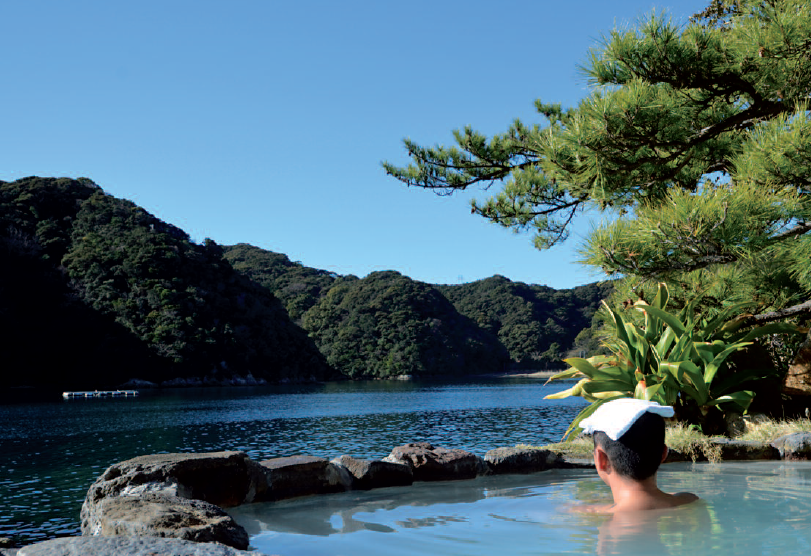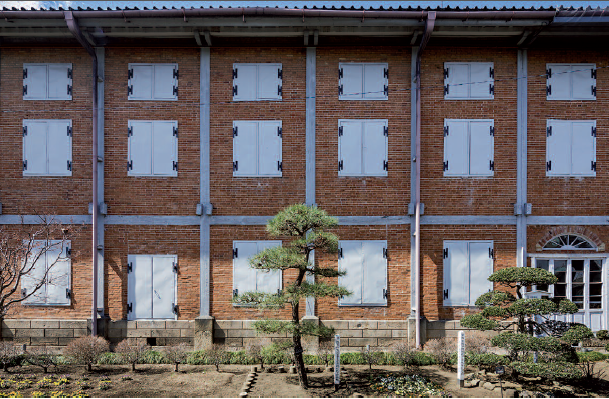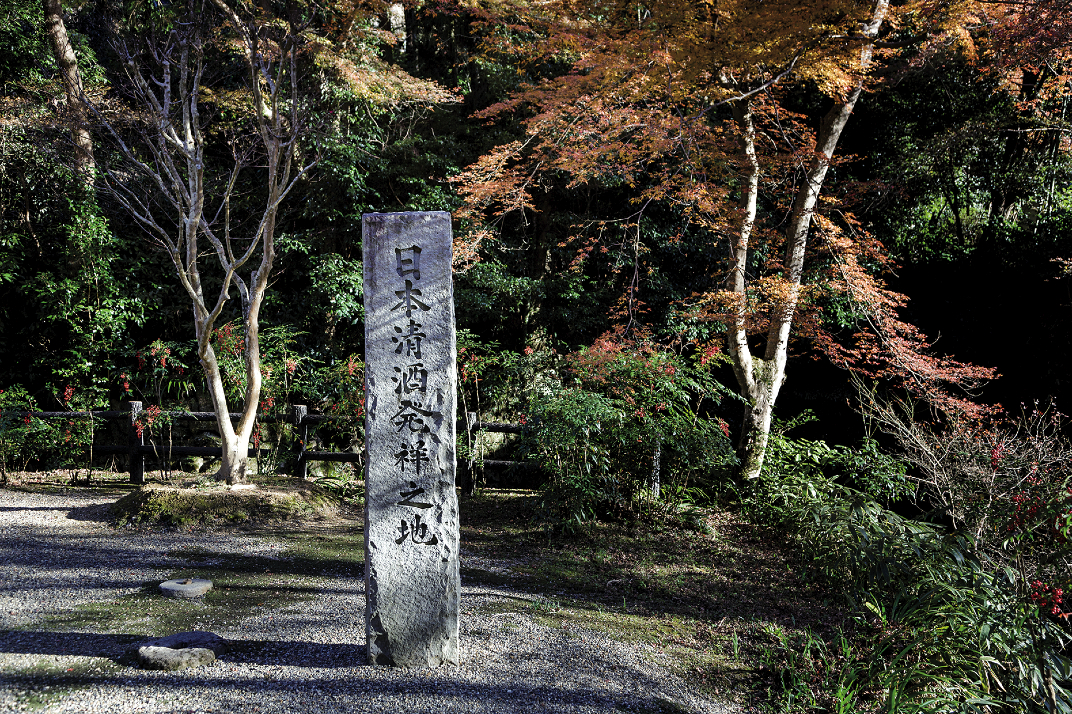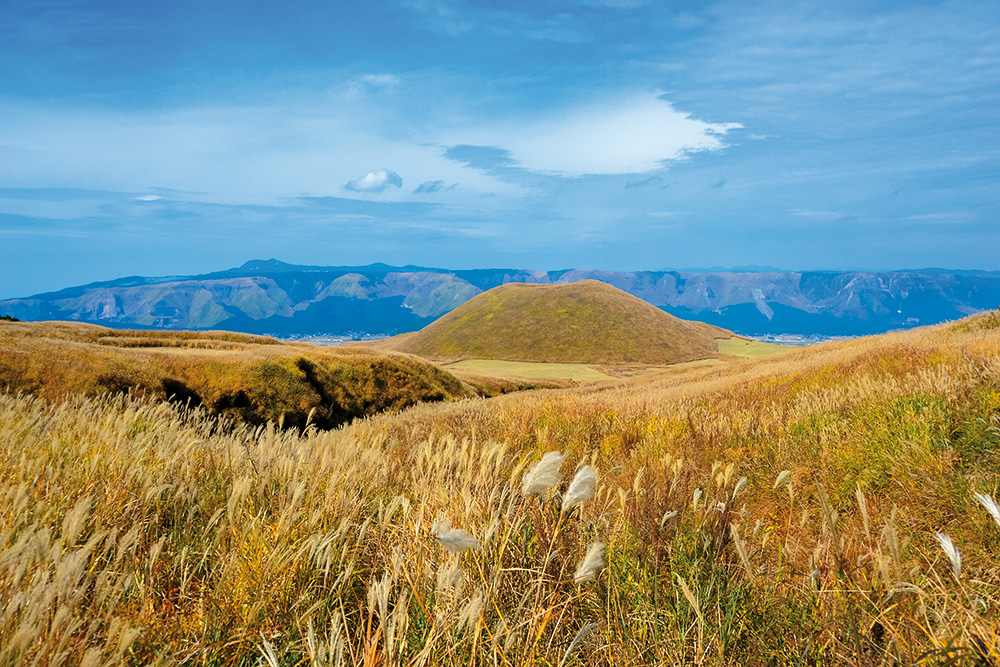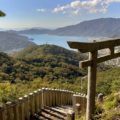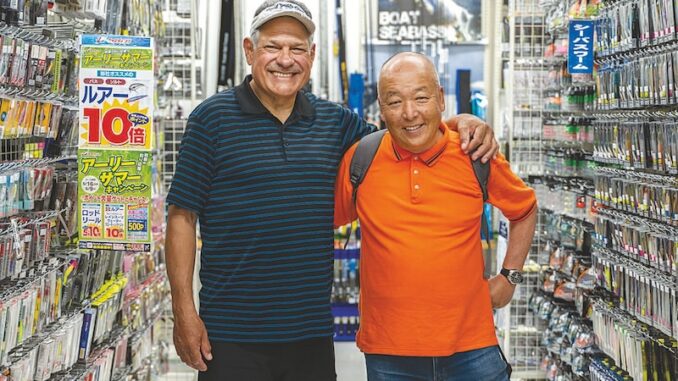
An inveterate fisherman, Ralph Nunez decided to make his life in Japan to indulge his love of water and fish.
Japan is becoming increasingly attractive for many foreign anglers. They come to catch both impressive fish and for the world-famous made-in-Japan fishing gear. However, for many foreigners, navigating the world of Japanese fishing can be tricky, especially if they don’t speak and read the language. Luckily, they’ve found in Ralph Nunez a seemingly endless source of reliable information on Japanese fish, fishing customs and tackle stores; he’s quickly becoming the go-to man for both foreign travellers and expats.
Nunez was born in Southern California (“next to Dodger Stadium in Los Angeles”, he likes to point out) and started fishing in local Echo Park, catching bass, bluegill and catfish carp. He chuckles when asked about the first fish he caught. “I’m pretty sure it was a fish I caught in a hospital,” he says. “I was three or four years old, and I was visiting my dad. I would sit on a fountain watching the carp swim round and round, and after several days of trying I finally reached in, grabbed one, and carried it back to my father’s hospital room. I got the shit beaten out of me by my mother with one of my father’s crutches.”
Nunez has lived in Japan for the last 42 years. “I came in the early 80s as a student to do a sociology project,” he says. “I was scheduled to be here three months to write a report, do some interviews, keep a journal and then go back to university at Humboldt State in Northern California, but I never went back. I lived in Kyoto, Tokyo and Nagano and I fell in love with the country, the people, the language, the food. I found a place that spoke to me.”
When he lived in the States, Nunez used to fish trout and salmon in Northern California and continued with freshwater fishing even after moving to Japan. “Trout, bass, bluegill, you name it,” he says. “Japan is 80% mountains and there are a lot of lakes, ponds, and streams big and small. One of my favourite hunting grounds was in Chiba, a peninsula east of Tokyo. Then one day I tried my hand at saltwater fishing and caught a sea bass, which is a cousin of the freshwater variety. They bite the same lures, you just need a little heavier line and gear, but they are over a metre long and are delicious. I thought, maybe it’s time for me to graduate from freshwater to saltwater. So, I started going out on boats with my friends. We would charter a small boat and go to Manazuru in Kanagawa Prefecture, or farther down to Shimoda, Misakiguchi, or up to Ibaraki. We would leave at 1.00 or 2.00 a.m., drive 3-4 hours and have great fishing because the farther you go from Tokyo, the better the fishing gets.”
Nowadays, Nunez only fishes on boats. “The cost of going out on a Japanese sport fishing boat is about 10,000 yen per person, which is much cheaper than in many other countries. In America, for example, you have to pay between 200 and 270 dollars for one day. Prices in Japan are incredible. And now that a lot of people come from Asia – Singapore, Malaysia, the Philippines, Hong Kong – the captains and staff are trying to speak more English to attract customers.
“I always advise people who come to Japan and fish recreationally to invest in some gear, but you can just pick a boat that will lend you everything you need. They advertise on the internet. If you’re not sure, you can always call and check, and if you can’t speak enough Japanese you should have somebody call for you. A lot of boats will charge you 1,000 yen to use the rod and reel and will throw in the other gear (rainwear, boots, lifejacket) for free or almost free because they want you to become a customer. So, all you have to buy yourself are the hooks.”
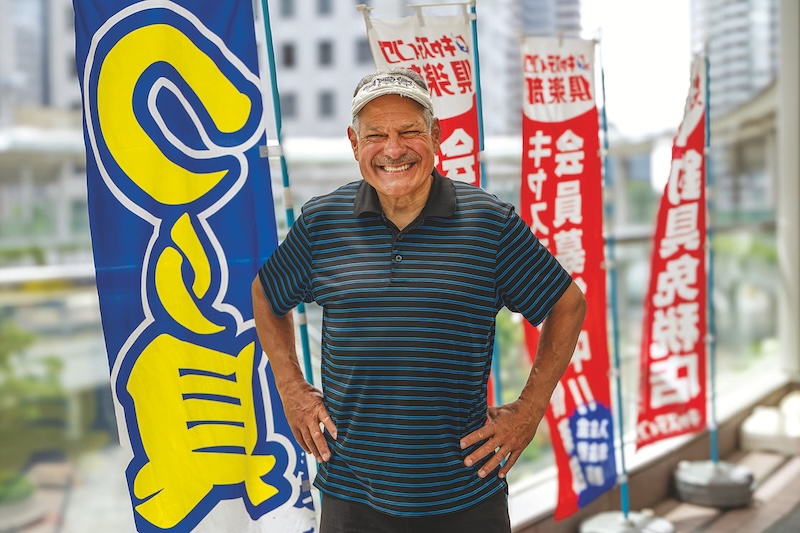
Nunez says that he does not see himself as a sports fisherman. “My fishing goes beyond recreational. I fish to feed my family and stay sane in this crazy world. People who fish regularly in Japan are serious. They’re fishing for dinner, like me. I feel like I have to provide for my family because it’s not a cheap hobby and, at the end of the day, I have to show that I’ve not wasted my time.
“I fish all year, as fish change by the season. Right now, it’s the end of deep-water fishing, like the golden eye snapper (kinmedai). If you go to a restaurant and order one of those fish, you are going to fork out 7,000 or 8,000 yen. Now the red snapper (medai) season is starting. They come to the shallow water to spawn. We’ll have good fishing from now all through summer.
“There are fish that you catch all year like horse mackerel or kisu (sand-smelts) that you can catch in Tokyo Bay and shallow water. Tokyo Bay is nice because you’re not in the open ocean. The bay protects the boats from the wind and the waves. So, if you’re a foreigner and you’re not sure if you’re gonna get sick, my suggestion is to try Tokyo Bay first and test your sea legs. It’s a good compromise.”
Nunez insists that the fish caught in Tokyo Bay is delicious. “When I got here in the 80s, there was a lot of pollution. But they’ve changed the laws, the factories have cut down on pollution, and the water has become much cleaner. The fact that a lot of fish have come back is the best proof of it. And they taste good! People think that Tokyo Bay is too dirty, but, if you’re into inshore fishing, one of the best spots to catch fish is near Haneda Airport, just where the Tama River goes into the bay. Everybody is surprised when they hear that, and the water indeed looks dirty, but it’s because there’s a lot of plankton. That’s why the fish are delicious. It’s tastier than anything you can buy at the supermarket or eat at a restaurant. Near Haneda you can even catch saltwater eels and octopus. They’re not that difficult to catch once you have the right information.
“The only fish I release when I go out in Tokyo Bay is sea bass. Even now the sea bass don’t taste that good. If you catch one in the ocean, it’s okay, but near here they still smell a little bit because they’re born here, reproduce here and never go to the clean water, so they have a lot of impurities.”
Asked about his favourite fish, Nunez says he is partial to tuna and other big fish. “They’re powerful, and they’re great eating. And for me, the tuna represents summer, which is my favourite season. I also deep-drop fish for goldeneye snapper. I love the deep-water fish because they taste so good. They’re so fatty and oily when you cut them up. They’re almost like little pieces of sirloin steak sometimes. The fattier the fish, the better it’s gonna taste. You can’t find that stuff in a restaurant. And you couldn’t afford it if you found it, at least not in Tokyo.
“Also, I like trolling for marlin. Those fish weigh 150 or 200 kilograms and you need a team to catch them. You can’t do it by yourself. There are five people on our team and we all have a position. To get a fish that big safely without getting hurt or killed you have to work together and stay calm. And know what you’re doing.”
Nunez finds that Japanese anglers’ approach to fishing has improved in the last few years. “The last time I checked, three years ago, the Japanese recreational fishing population was almost nine million people, and you’ll be surprised to know that there’s no such thing as a fishing licence. And people go, well, how can the fish survive? I mean, there can’t be any more fish left! But there are. I’ve talked to a lot of the fishing boat captains, and asked what they thought about Japan starting a fishing licence system? With the revenue, they can do more environmental work, teach the children in schools about keeping the ocean clean, how to fish, you know. A lot of that money can be used to educate the next generation of anglers. And the captains’ usual reaction is, why? They say, these are our islands, it’s our God-given right to fish. Who needs a licence? That’s the Japanese attitude. So, Japan has very few regulations. Luckily, the Japan Game Fishing Association (JGFA) has started recommending bag limits, which means don’t fill up two coolers of fish, take enough for a few meals and throw the rest back. The JGFA has also been instrumental in introducing size limits. Throw the small ones back. Then there are times when the fish are spawning and the females are full of eggs, so don’t catch ribbonfish in November, that’s when they’re full of eggs. And the Japanese think, well, those eggs are delicious, you know, they think with their stomach (laughs). But now a lot of boats stop fishing for one species during spawning because they want to stay in business. They understand that if you take all the fish during spawning their future is not so bright. They’re getting smart even without strict regulations.
“In Aomori, where they catch the bluefin tuna, sport fishing is now being allowed, but it’s all catch-and-release. You have a one-fish limit and only special captains and special boats have permission from the local coop to fish for the bluefin tuna, and maybe only one month out of the year, so the population isn’t affected.”
Fishing education and raising the next generation of anglers are important, and Nunez has made his contribution by creating a fishing club for teenagers. “I’ve been working for a university for the last 23 years,” he says. “They have an attached junior high and high school, and I teach English there, working with kids from 12-13 years old all the way up to 18. So many kids now stay indoors playing games all day and, even when they do go out, they don’t know how to play outdoors. They go to the park and sit on the bench playing games. They don’t know how to be active. So, I started a fishing club at my school and now have 18 boys – 18 little hardcore fishermen. We charter boats and go offshore. We get skipjack, yellowtail, red snapper and rockfish. Once we fished in typhoon weather conditions, and some of them got sick, but they had a bucket in one hand and a rod in the other. They were hardcore.”
Nunez’s school not only green-lighted the fishing club but even gave him a budget so they could get gear for the kids. “I’m very grateful for the money, but it’s only 150,000 yen for the year. Currently, there are 18 boys, and I can’t afford to buy much with that kind of money. You know, they need life vests and a set of rods and reels, a pair of deck boots, a cooler and rainwear. Luckily, people give me rods because they know I run the club. For example, a friend’s grandfather dies and he had lots of fishing gear, so they say, come and pick up the gear, you can use it for the club.
“Now I have so many rods and fishing gear in my house, I don’t know how much stuff I have. My room is a danger zone, so my family stays away from it. There are hooks on the floor, there are rods. It’s unsafe.”
Someone with such a burning passion for fishing must have a very patient wife, and Nunez admits that he married the right kind of woman. “I came to Japan when I was 19 and didn’t get married till I was 34, so I had a good time in my single days. But when I decided that I needed a life-long partner, I met this woman, and she said she was from the beach, her family house was on the waterfront in Chiba, near Tateyama. Then she said that her father was a fisherman and her grandfather had been a commercial fisherman, so I thought she was the right woman for me.
“Her grandfather, unfortunately, went fishing one day and never came back, he was lost at sea. So, she constantly worries about me. Which boat are you going on? What’s the phone number? Did you check the weather? Do you have your life jacket? BUT she loves fresh fish! So, I better catch a few otherwise I’m in trouble. When I bring the fish home I have to clean and gut it all myself, but I mostly make sashimi, so it’s pretty simple. Sometimes we take it to the restaurant and ask them to cook it for us. We have a full-course dinner, and my wife is happy because she gets out of the kitchen and doesn’t have to cook, shop or wash dishes.
“What my wife hates about my fishing is what I do when I get home. You need to oil and maintain your gear frequently because in Japan everything rusts, even plastic rusts. So, when I finish fishing, I take all my gear in the shower – my raincoat, my boots, cooler, reels, rods – and take a shower with it all. My wife always gets mad at me, but if you don’t wash off the salt water all the gear will corrode, and it doesn’t come cheap.”
Nunez says he can be happy only if he is near water. “Even if it’s just a pond, my heart feels different,” he says. “I feel at peace. That’s my reason for staying in Japan. I love water and this is a great island nation. Their fishing culture matches my way of thinking and my passion. It has also taught me so much about history, culture and fishing styles that I could have never imagined in my life; fish that I have never seen. If it’s new to me I wanna try and get it. It’s like the children who try to get a Pokémon card, you know? I’m always looking for new experiences. That’s the whole point.”
Gianni Simone
To learn more on this topic, check out our other articles :
N°142 [PRESS] Tsuribito is still going strong
N°142 [FOCUS] The Japanese, mad about fishing
N°142 [TOKYO] With the city-centre anglers
Follow us !

